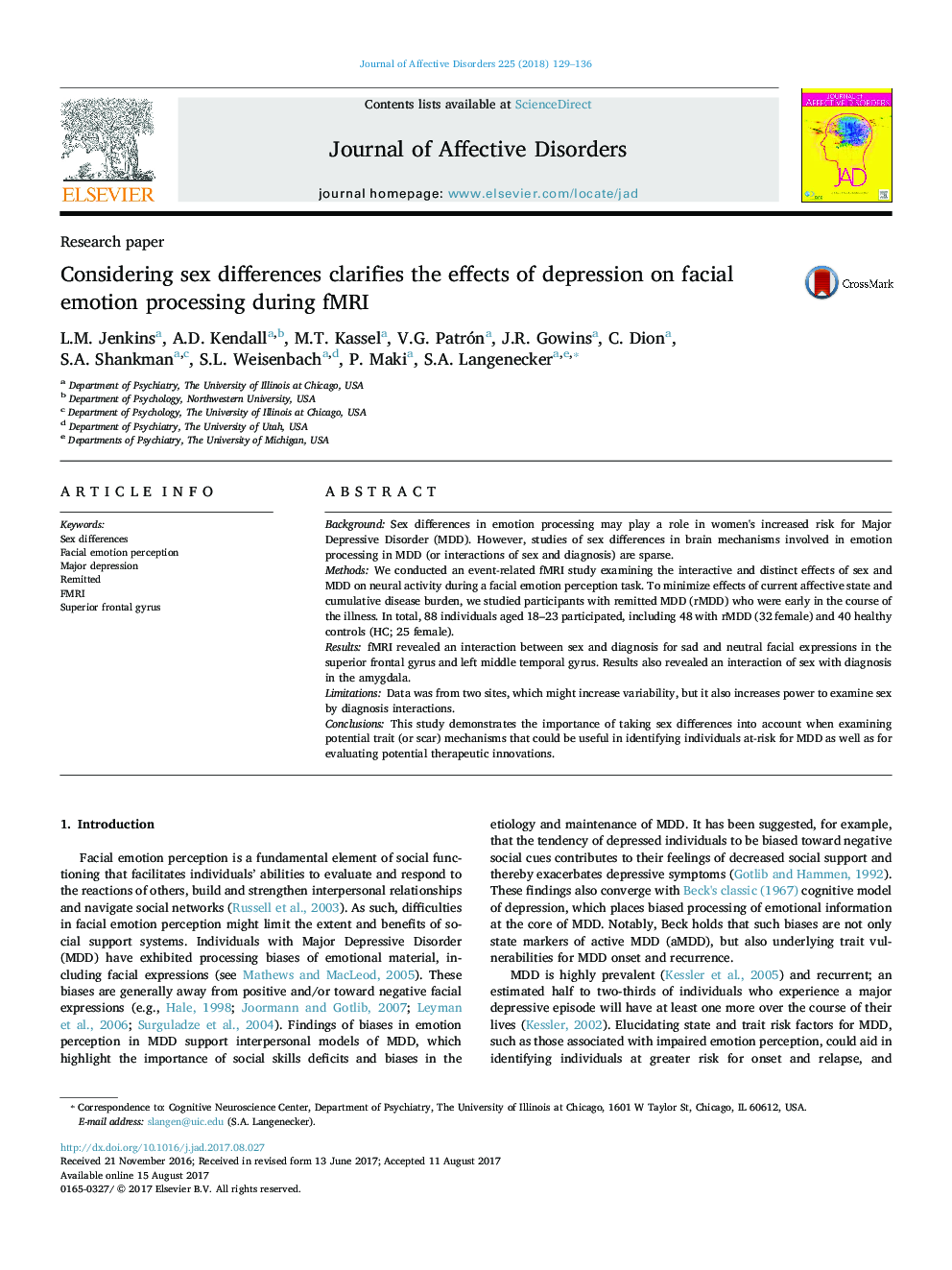| Article ID | Journal | Published Year | Pages | File Type |
|---|---|---|---|---|
| 5721699 | Journal of Affective Disorders | 2018 | 8 Pages |
â¢Females are twice as likely as males to have major depressive disorder (MDD).â¢Potentially due to sex differences in facial emotion processing.â¢We used fMRI to study effects of sex and MDD history on facial emotion processing.â¢Interaction of sex and diagnosis seen in superior frontal and left temporal gyri.â¢Consideration of sex is important for examining neural mechanisms of emotion in MDD.
BackgroundSex differences in emotion processing may play a role in women's increased risk for Major Depressive Disorder (MDD). However, studies of sex differences in brain mechanisms involved in emotion processing in MDD (or interactions of sex and diagnosis) are sparse.MethodsWe conducted an event-related fMRI study examining the interactive and distinct effects of sex and MDD on neural activity during a facial emotion perception task. To minimize effects of current affective state and cumulative disease burden, we studied participants with remitted MDD (rMDD) who were early in the course of the illness. In total, 88 individuals aged 18-23 participated, including 48 with rMDD (32 female) and 40 healthy controls (HC; 25 female).ResultsfMRI revealed an interaction between sex and diagnosis for sad and neutral facial expressions in the superior frontal gyrus and left middle temporal gyrus. Results also revealed an interaction of sex with diagnosis in the amygdala.LimitationsData was from two sites, which might increase variability, but it also increases power to examine sex by diagnosis interactions.ConclusionsThis study demonstrates the importance of taking sex differences into account when examining potential trait (or scar) mechanisms that could be useful in identifying individuals at-risk for MDD as well as for evaluating potential therapeutic innovations.
